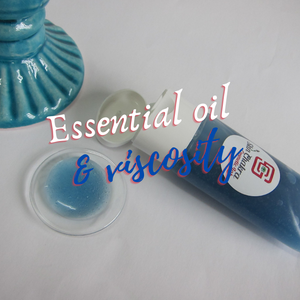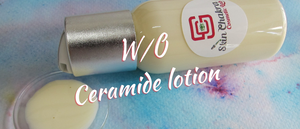When your beaker flies around the lab
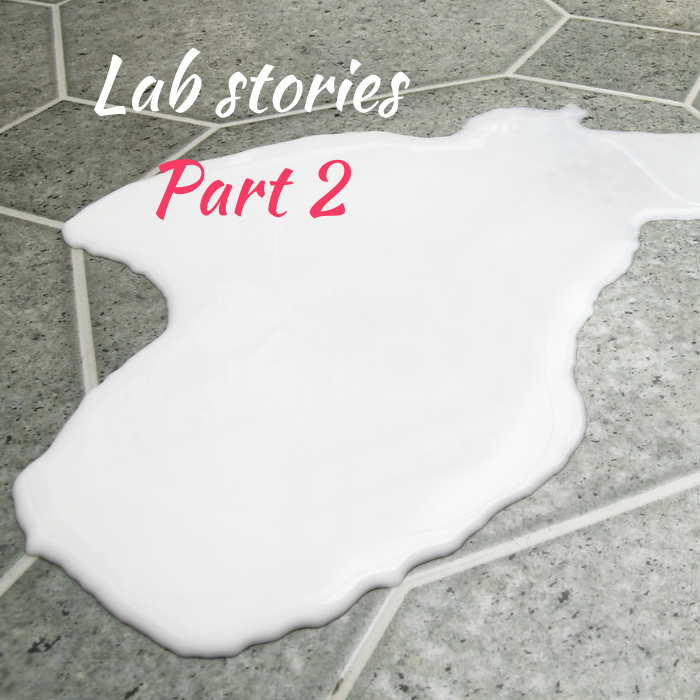
In lab stories we share some of the "behind the scenes" stories from our lab with the intention that you avoid our mistakes and you realize that everybody makes mistakes. Formulation and running a lab is not only bells and whistles and beautiful photos. It is sometimes disasters, accidents, mistakes, lost nerves, tears and a huge mess left behind. For every pretty photo and stable product we can share you at least 10 unstable samples and hundreds of ugly photos and this is what you shall expect when you start formulating a new formulation or even change something in an existing formulation.
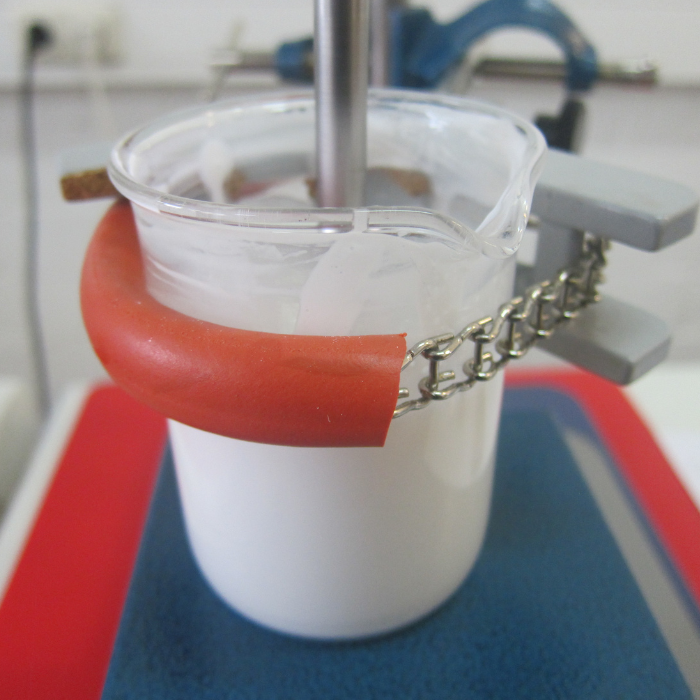
Once upon a time we didn't secure the beaker with the strap correctly and as the stirrer started turning around with an rpm of over 1000 it accelerated the full beaker and before we could realize what's happening there was a beaker on the floor with its content totally spread around. Thanks heaven the beaker got only a crack and didn't break into thousand pieces. So far so good and this might have happened to many of you.
The ugly part of the story is: the beaker contained a water resistant water in oil emulsion.
Now try to imagine how long we spent to clean the mess ....
That brings us to cleaning the mess and cleaning the labware. When we work with lots and lots of oils and create cream after cream, we need to somehow clean the containers and the utensils. With O/W emulsions this is not a big deal but with W/O emulsions it can become a real ordeal
We talked about this during one of our mastermind meetings (if you are curious and interested you can try a 3 months membership to see if this is for you) and our members who already have a business shared their insight and experience. Since I know this is something we all have to deal with, no matter if you are a DIYer or a novice artisanal manufacturer or in the business for a while, I am sharing the recommendations and suggestions with you here:
1- To avoid polluting the sewage use one of those grease interceptors that they usually use in gastronomy and restaurants. These are quite affordable and you can attach them to your sink and dishwasher so that the container collects the fat and fatty material and separates it from water
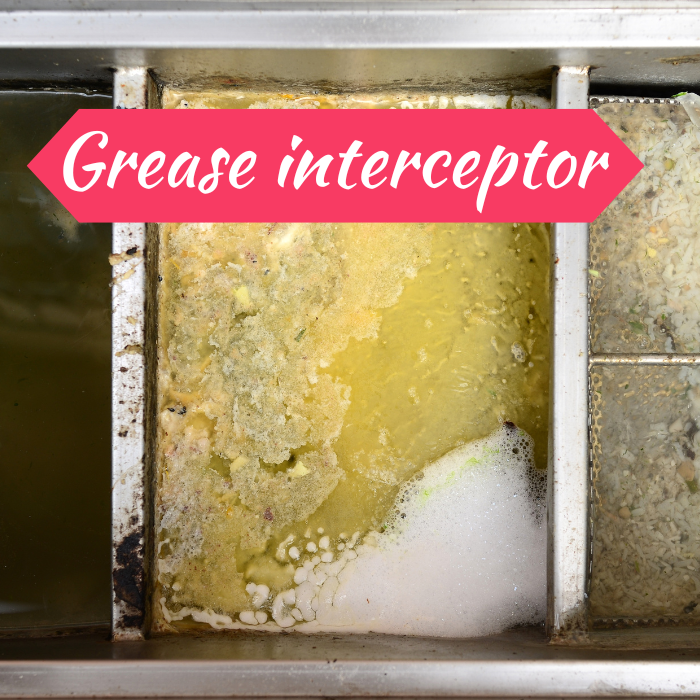
2- Wipe your beakers with a paper towel before you rinse them or put them in your dishwasher
3- When you have some really stubborn fat residues or when you work with water in oil formulations, spray a few spritzes of those concentrated orange cleansers that you find the the drugstore to accelerate clansing. This helps a lot
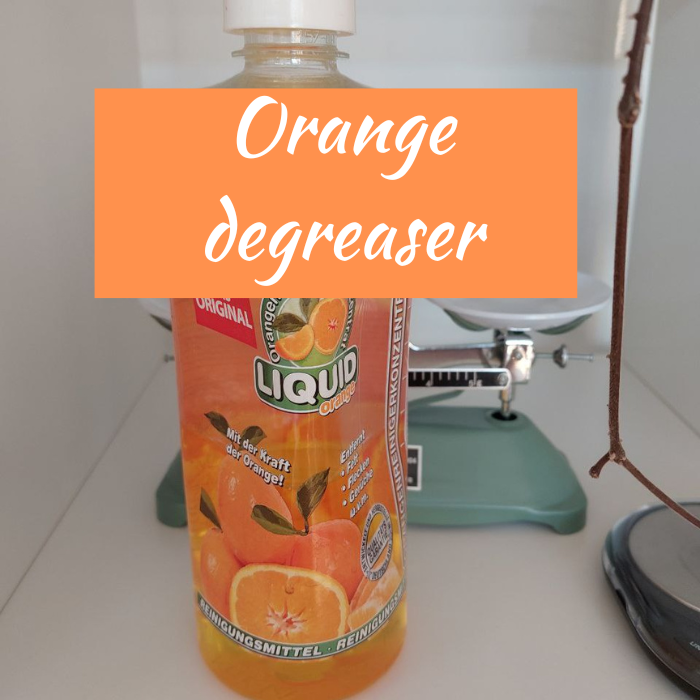
I hope this advice can help you cleaning up faster and more efficiently. If you use a dishwasher to wash your laboratory vessels and instruments, dedicate it only to the labware and do not use it for other purposes.
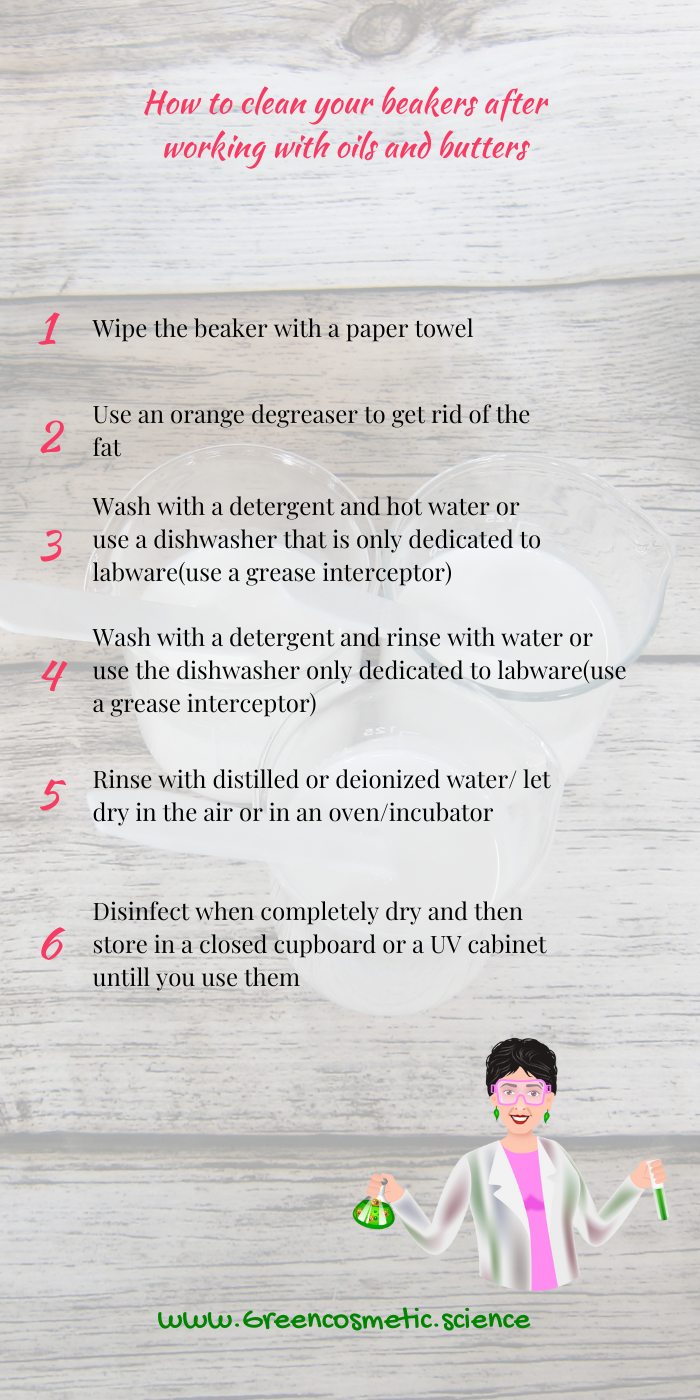
Stay cheerful and creative

